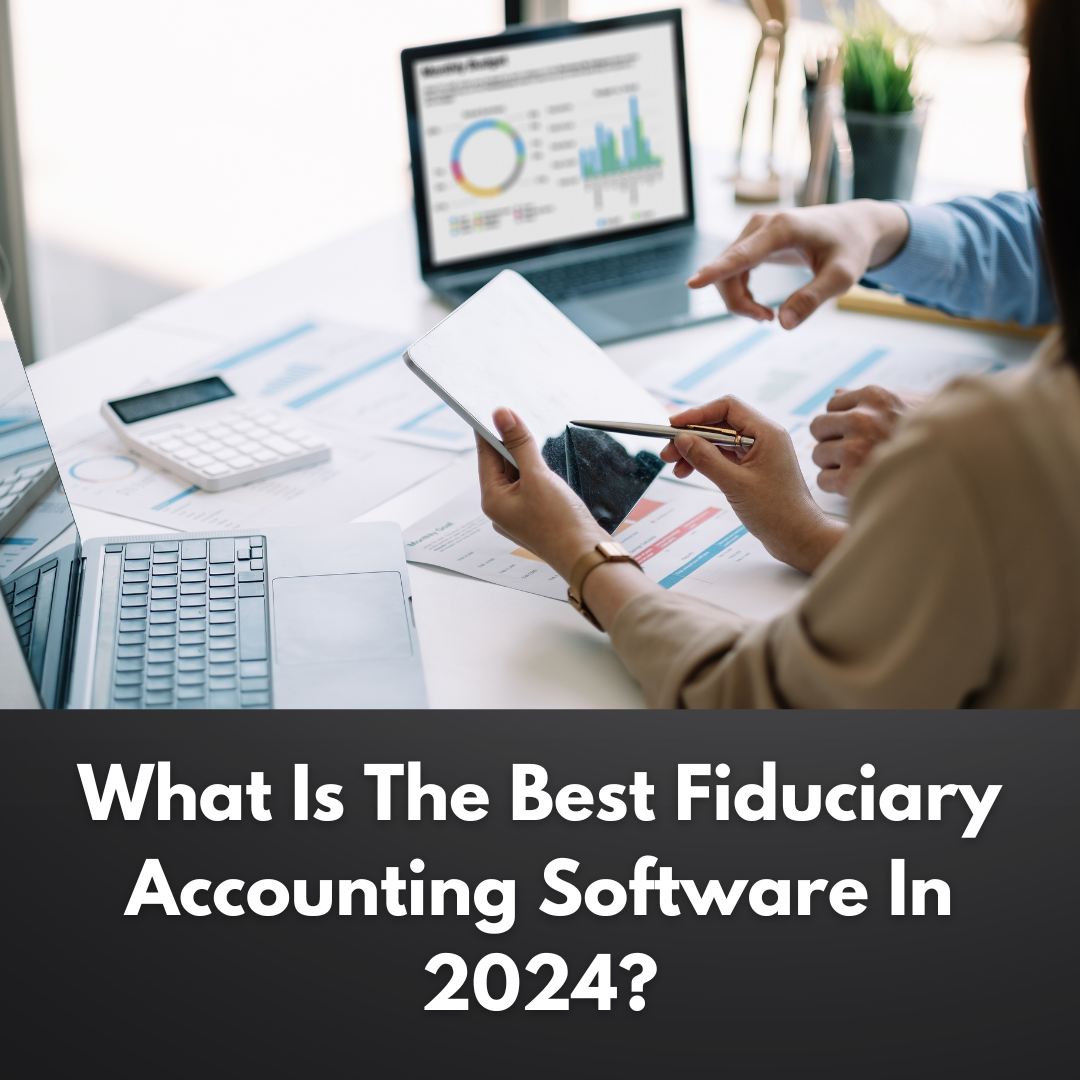
In the complex world of fiduciary accounting, professionals face the unique challenge of managing financial affairs not just for individuals but for trusts and estates. This responsibility demands meticulous attention to detail, a deep understanding of legal obligations, and the ability to manage diverse assets efficiently. This is where fiduciary accounting software becomes indispensable.
Why Fiduciary Accounting Software is Crucial
- Accuracy and Compliance: Fiduciary accounting involves adhering to strict legal and ethical standards. Software tailored for fiduciary accounting helps ensure accuracy in financial reporting and compliance with relevant laws and regulations.
- Efficient Asset Management: Trusts and estates often involve a variety of assets, including real estate, stocks, and personal property. Fiduciary accounting software can streamline the process of tracking and managing these diverse assets.
- Time-Saving Automation: Tasks such as calculating distributions, generating reports, and managing tax filings are time-consuming. A specialized software automates many of these processes, freeing up valuable time for fiduciaries.
- Enhanced Security and Confidentiality: Protecting sensitive client information is paramount in fiduciary accounting. These software solutions offer robust security measures to safeguard data against unauthorized access.
- Client Communication and Reporting: Fiduciaries must regularly report to beneficiaries and other stakeholders. Accounting software can produce clear, comprehensive reports that are easy for non-experts to understand.
Matterly: The Ideal Solution for Fiduciary Accounting
- Customization for Fiduciary Needs: Matterly is designed with the specific needs of fiduciary accounting in mind, offering customizable features that cater to the unique aspects of trust and estate management.
- Advanced Automation: Matterly automates key processes such as distribution calculations, tax preparation, and report generation, significantly reducing the likelihood of human error and increasing efficiency.
- User-Friendly Interface: With its intuitive design, Matterly is accessible even to those with limited technical expertise, ensuring that all functionalities are easily navigable.
- Comprehensive Asset Management: The software provides tools for managing a wide range of assets, making it easier to track and report on diverse portfolios.
- Robust Security Features: Matterly prioritizes data security, offering advanced encryption and other security measures to protect sensitive client information.
- Seamless Integration: It integrates smoothly with other legal and financial software, ensuring a cohesive workflow and reducing the need for redundant data entry.
- Dedicated Support and Training: Matterly provides comprehensive support and training resources, ensuring that users can fully leverage the software’s capabilities.
For professionals in fiduciary accounting, leveraging the right software is not just a matter of convenience; it is a necessity for accuracy, efficiency, and compliance. Matterly stands out as a comprehensive solution tailored to meet the intricate demands of fiduciary accounting, making it an ideal choice for those in the field.
Enhanced Focus on Compliance and Security in Fiduciary Accounting Software With Matterly
Compliance in Fiduciary Accounting
Compliance is a cornerstone in fiduciary accounting, where professionals are required to adhere to a complex web of regulations and ethical standards. The consequences of non-compliance can be severe, ranging from legal repercussions to loss of trust and reputation. This is where fiduciary accounting software plays a critical role.
- Regulatory Adherence: These software solutions are regularly updated to reflect the latest legal changes and regulatory requirements, ensuring that fiduciaries are always in compliance with current laws.
- Ethical Standards Maintenance: Beyond legal requirements, fiduciaries are held to high ethical standards. Accounting software helps maintain these standards by providing transparent, accurate reporting and documentation, which is essential for ethical practice.
- Audit Trails and Record-Keeping: Good fiduciary accounting software includes comprehensive audit trails and record-keeping functionalities. This feature is crucial for demonstrating compliance during audits or legal proceedings.
- Error Reduction: Automated calculations and data entry significantly reduce the risk of human error, a common source of compliance issues in manual accounting processes.
Security in Fiduciary Accounting
Security is paramount in fiduciary accounting due to the sensitive nature of the data handled. Fiduciaries are entrusted with personal and financial information that requires the highest level of protection.
- Data Encryption: Modern fiduciary accounting software employs advanced encryption methods to protect data both in transit and at rest, ensuring that sensitive information is shielded from unauthorized access.
- Access Controls: These systems often have robust access control mechanisms, allowing administrators to set varying levels of user permissions, thereby limiting access to sensitive data based on roles and responsibilities.
- Regular Security Updates: As cyber threats evolve, it’s crucial for software solutions to stay ahead. Regular security updates help protect against the latest vulnerabilities and hacking techniques.
- Backup and Recovery: In the event of a system failure or data breach, having reliable backup and recovery options is crucial. Fiduciary accounting software often includes features for secure data backup, ensuring that critical information can be restored quickly and securely.
- Compliance with Data Protection Regulations: Software providers must ensure that their products comply with relevant data protection laws like GDPR, HIPAA, etc. This compliance not only protects clients’ data but also shields fiduciaries from legal penalties related to data breaches.
Conclusion
In conclusion, the importance of compliance and security in fiduciary accounting cannot be overstated. Fiduciary accounting software plays a vital role in ensuring that fiduciaries meet their legal, ethical, and security obligations efficiently and effectively. By using such software, fiduciaries can focus more on their core responsibilities, secure in the knowledge that their compliance and data security needs are being expertly managed.

